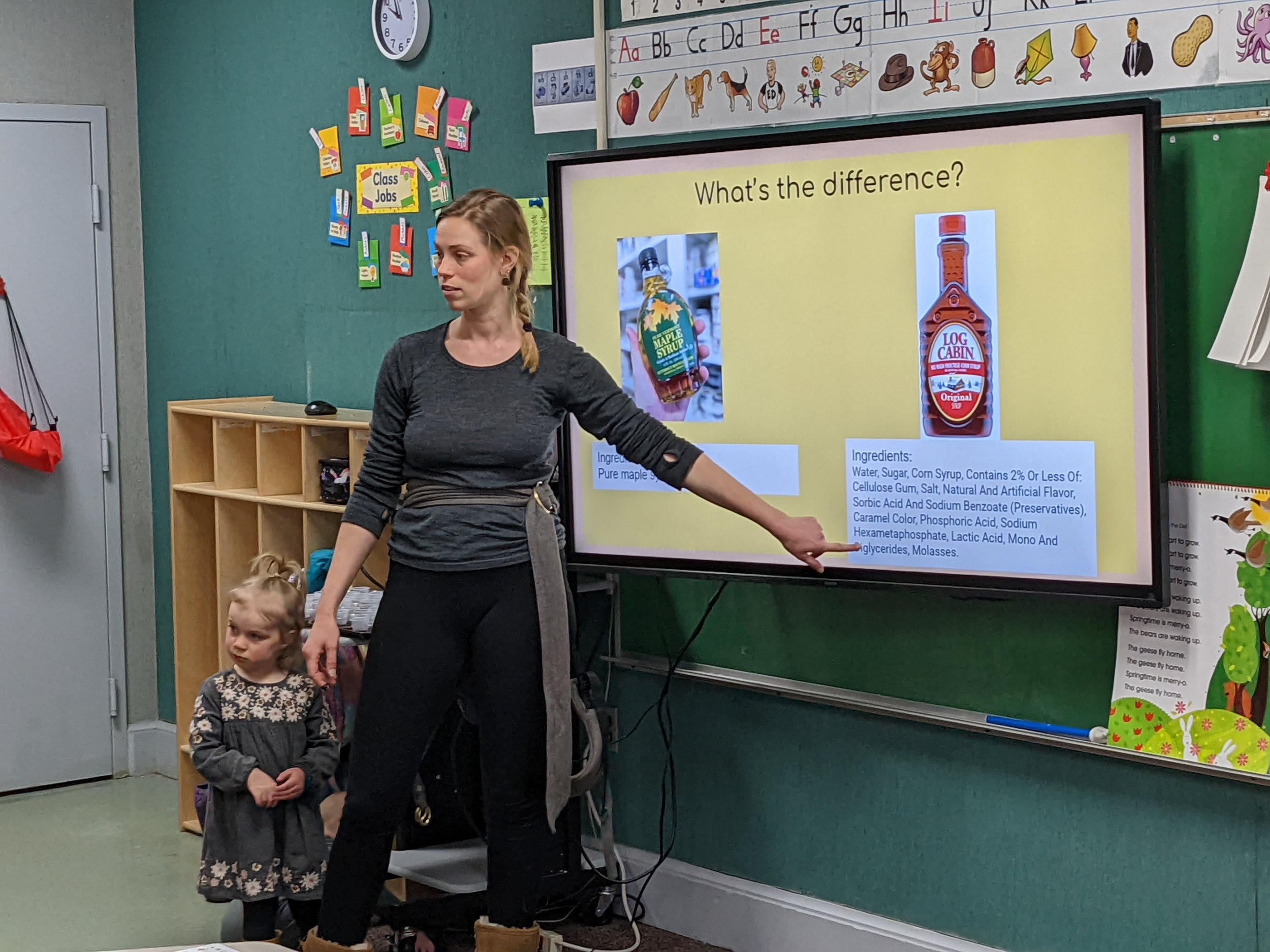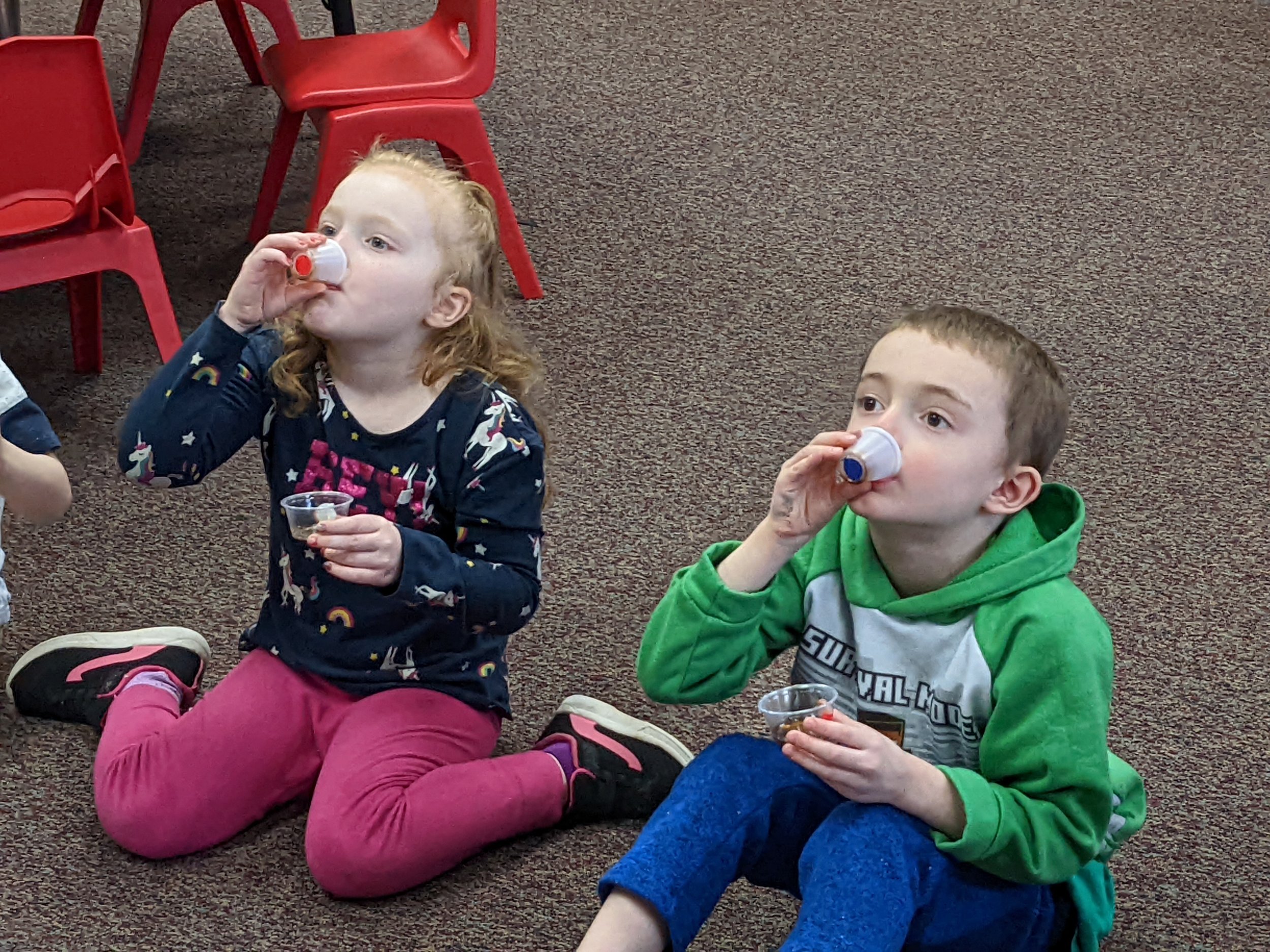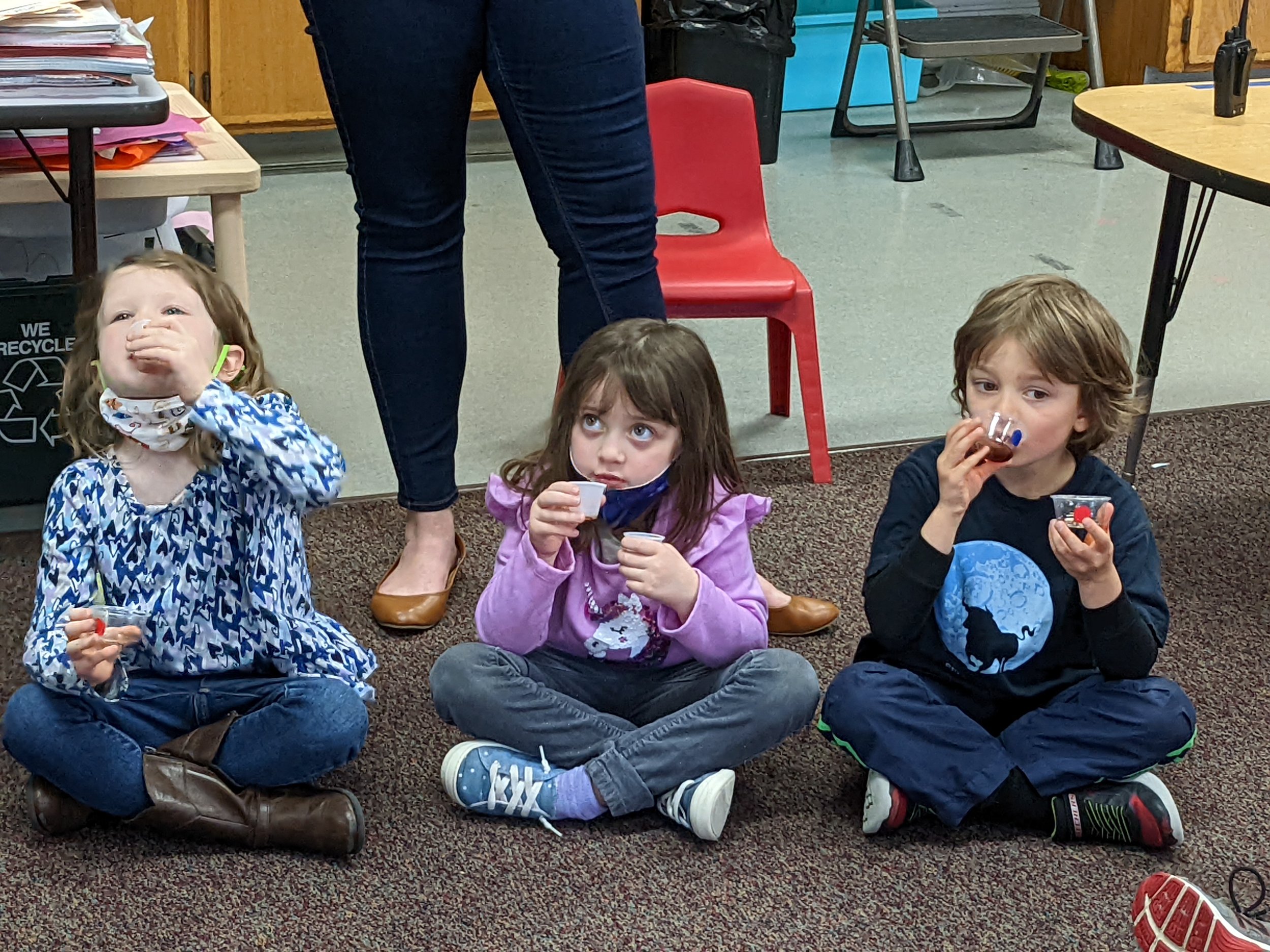In March 2022, Townshend Elementary School launched its Farm to School program, offering monthly taste tests and activities for students, focusing on the Vermont Harvest of the Month. Part-time teacher Kelsey Taddei volunteered her time to run the program with Food Connects FTS coach Jenny Kessler. By the end of the school year, it was clear that students and teachers alike really enjoyed growing their knowledge about local food. But the program needed resources to pay a Farm to School Coordinator to run programming, purchase supplies and curricular materials, and build a small garden.
Highlighting Successes in Food Connects’ Member Schools during the 2021-2022 School Year
The week before the start of the 2022-23 school year, Food Connects hosted a Celebration of Farm to School for school administrative teams and food service directors. We are so proud of the work being done by Farm to School teams at our member schools in Windham Central Supervisory Union, Windham Northeast Supervisory Union, and Windham Southeast School District, and we are grateful to the leaders who help make the work possible. At the event, we shared highlights from the 2021-22 school year at each member school, and we want to take a moment to share those highlights with a wider audience. Read on to hear the wonderful things happening in schools throughout the region!
Blue Cross and Blue Shield Mini-Grants Support FTS Programming in Area Schools
Several area schools, including Academy School, Towsend Elementary, and Newbrook Elementary, were awarded grants by the Windham County Community Advisory Board of Blue Cross and Blue Shield of Vermont. This is a volunteer board of dedicated Windham County residents who are local champions of healthy activity and programming of all kinds. Several proposals were submitted for this round of funding to strengthen Farm to School (FTS) programming, and Food Connects is thrilled to celebrate this vital support for FTS-related wellness projects in some of our member schools!
At Academy School, 4th-6th grade classes are excited to receive funding to purchase a grow lab and humidity tent that they will use to grow plants for their garden beds. The grow lab will provide approximately 180 students the opportunity to become more involved in starting seeds in their classrooms. The seedlings grown will stock their school garden beds with vegetables, herbs, and flowers that can be used for cooking activities in their classrooms.
Townshend Elementary School launched a brand new FTS program in March. This grant will provide vital funding for purchasing ingredients and materials for Harvest of the Month taste tests and seed money for starting a small garden at the school. Taste tests are being given in each school classroom, reaching all 110 students. Students enjoyed the first Harvest of the Month activity in March, which focused on maple syrup. Teachers have already utilized funds from the grant to purchase a variety of whole grains for students to see, touch, and make art with, as well as some whole-grain bread and plain, refined flour white bread for April’s taste test. Garden planning is underway!
Just down the road at Newbrook Elementary School, the grant will fund multiple FTS-related projects. A woodfired pizza oven is central to Newbrook’s school culture and FTS program. This grant will fund the purchase of firewood to fuel the oven for six months and ingredients for pizza dough and sauce. The FTS team is also building two new raised beds next to the pizza oven so that students will be able to enjoy or work in the garden during recess time, if they choose, and will be able to harvest herbs and pizza toppings moments before their pie goes in the oven! The remainder of the grant will be used to restock the school’s cooking cart so that Amy Duffy, the school’s Garden Coordinator and FTS Educator, can continue to cook with students during her weekly visits to each classroom.
Many thanks to the Windham County Community Advisory Board of Blue Cross and Blue Shield of Vermont for supplying these grants and providing essential funding for activities and green spaces at our local schools.
Townshend Elementary School Launches Farm to School Program
This March, Townshend Elementary School launched its Farm to School Program, opening with a maple syrup tasting event to celebrate the Harvest of the Month.
During the last week of March, physical education teacher Carla West shared facts about the maple syrup harvest in Vermont. On Friday, March 25th, there was a taste test session in each classroom. Teachers Kelsey Taddei and Kathy Gatto-Gurney lead the effort with support from Food Connects staff Jenny Kessler. They asked students to share what they had learned or already knew about maple syrup. Not surprisingly, there were many experts in the house! At least half of each class had either made maple syrup themselves or had visited a friend or family member who makes it. And it was clear that Ms. West’s teaching had stuck—many students in each class told us right away that it takes 40 gallons of maple sap to make just 1 gallon of syrup!
Discussing that fact (and the related time and energy required to make real maple syrup) helped students understand why someone had the idea to make imitation syrup out of corn syrup. But could imitation syrup taste like the real thing? Pre-K through 5th-grade students did a blind taste test of Vermont maple syrup and imitation syrup made with corn syrup. They were asked to choose which syrup they preferred and guess which syrup was “from the tree.”
Not surprisingly, most Townshend students could tell right away which was the real thing. “This one tastes like chemicals,” said 4th grader Seamus Crockett. His classmate Stella Cleveland agreed. “This one tastes buttery and sweeter, and chemically. You can taste it in the aftertaste”. Daniel Sullivan knew it too, “This one tastes like butter. Butter taste comes from store-bought; it doesn’t come from a tree.”
These comments were echoed throughout the school. Students also looked at the ingredients in each product and discussed differences like distance traveled to the store and homes and the reasons for different price points of each syrup.
Students also tasted fresh sap that had been collected that morning. Most students were less familiar with the sap, and it helped them understand the 40:1 ratio a little more concretely.
Both students and teachers are looking forward to monthly taste tests and more Farm to School events in the future. The school would like to thank Ms. West’s family for the generous syrup donations.







